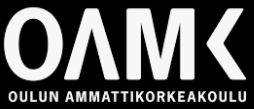
Oamk Journal
Julkaisija Oulun ammattikorkeakoulu
Päätoimittaja Tiina Kaksonen tiina.kaksonen@oamk.fi
ISSN 2737-0550
Yhteydenotot:
julkaisut@oamk.fi
www.oamk.fi
Palaute ja kehitysehdotukset
Otamme mielellämme vastaan palautetta, kysymyksiä tai muutosehdotuksia.
Ota yhteyttä julkaisut@oamk.fi.
Ohjeita kirjoittajalle
Tietoa Oamk Journalista
Toimituskunta
Toimituspolitiikka
Tekijänoikeudet
Saavutettavuusseloste
© 2025 Oamk Journal
Theme by Anders Noren — Ylös ↑
Ohjeita kirjoittajalle